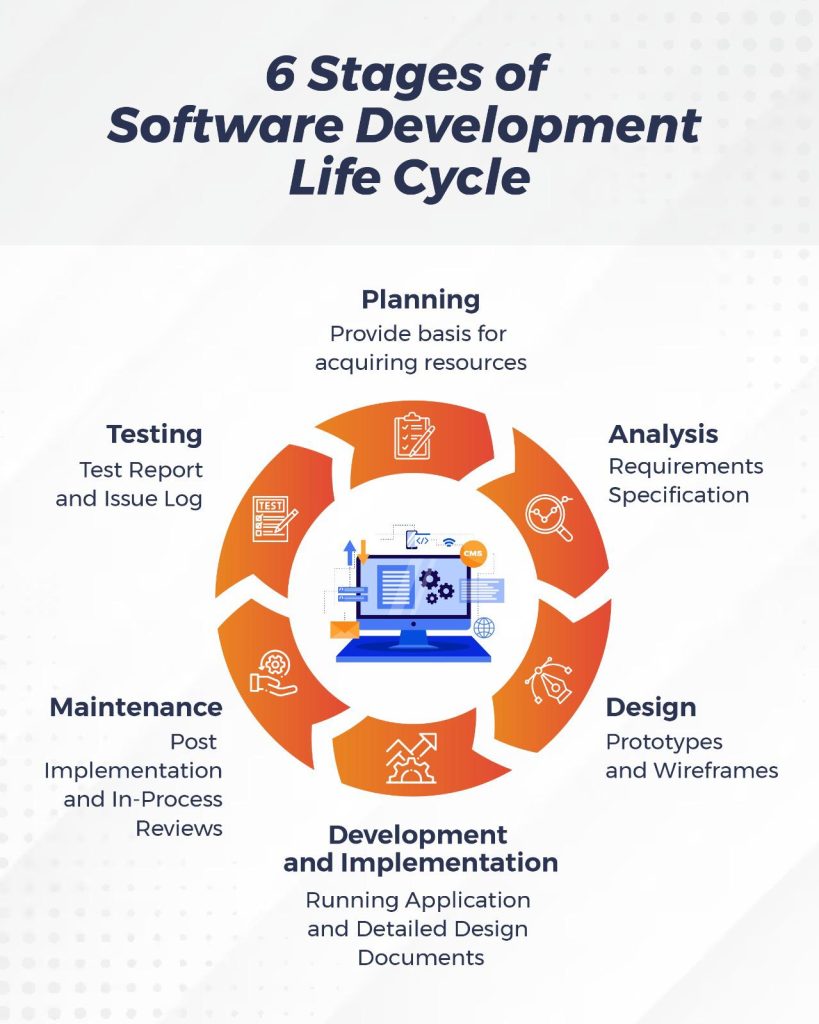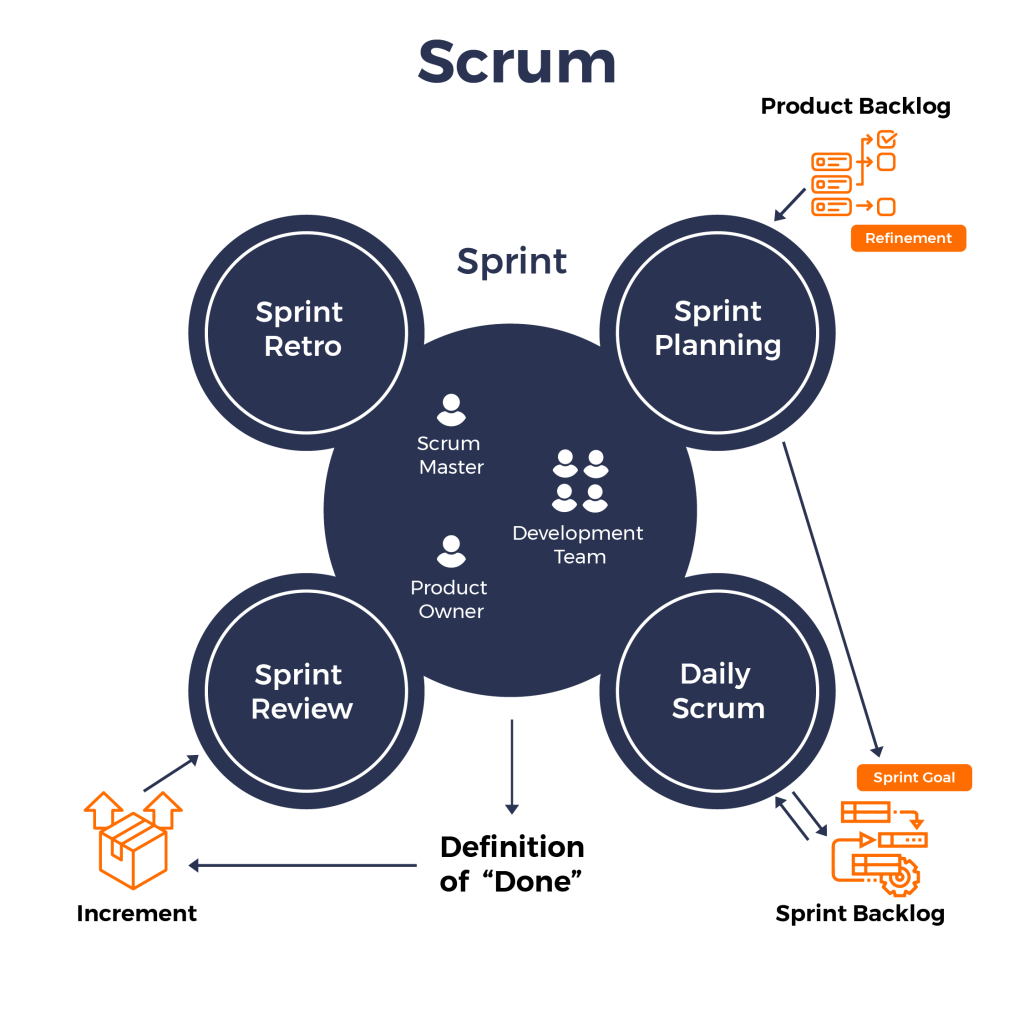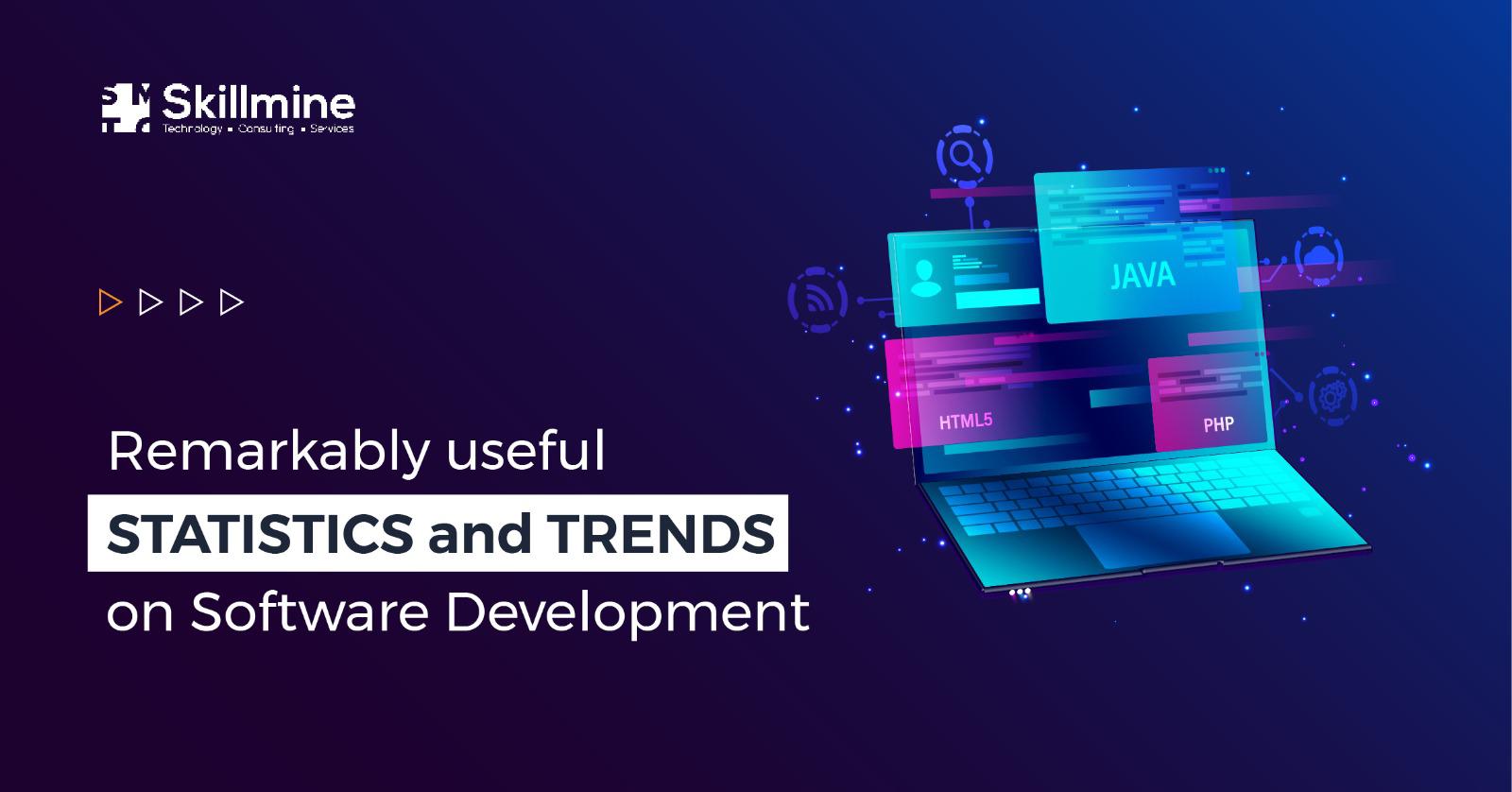The software industry has produced a variety of high-end technological gadgets that we rely on daily, such as personal computers, smartphones, tablets, the Internet of Things, and network systems. There is an all-time high demand for software, especially mobile apps for Generation Z, and automation tools for businesses in a rapidly changing world.
At a foundational level, software development is writing and maintaining source code. A broader scope includes stages from idea generation to final product manifestation.

This increases requirements for sophisticated models and tools. While the industry faces its own challenges, several methodologies have been developed over time to achieve effective and efficient software development.
Average time taken to develop custom software
Typically, software development activities include identifying needs, planning, designing, developing, testing, and deploying. Many companies offer software maintenance and support to their clients for a longer duration. Depending on the requirement, and technology used for the project, custom software development generally takes one to nine months. Most of the firms are attuned to delivering custom software in an average time of four and a half months.
General software development cost
The cost of a software development project, as stated by the latest reports from Fullstack Labs, a USA-based software development firm, ranges from $3000 to $120,000. On average, project proposal prices vary depending on key factors like the type of technology and integrated features involved, as well as a number of underlying factors, such as the resources involved and the quality of the code.
Common challenges faced by software development companies
Due to market volatility, clients often require software features to be upgraded as per the latest trends. This can lead to development or redevelopment. This can delay scheduled milestones and pave way for budget overruns. Every software project requires an equally unique set of tools, technology, and skills. Around 13.10% of IT companies find it challenging to build the right team to work on an incoming client project [Gartner survey]. Industry leaders tend to take a considerable amount of time and dynamic filtration to build the right team, which they can proclaim for any project needs. But before that, finding and hiring the right developers can be a challenge.
Approximately 8.90% of companies face challenges related to recognizing client requirements [Stack Overflow data]. Cultural or geographic differences are rarely a barrier to understanding a particular policy.
Integrating disparate systems and technologies presents a number of challenges for some companies. Businesses choose to develop custom software because of its flexibility in terms of integration; integrating various business systems and technologies (such as accounting, CRM, websites, workflow management, inventory management, etc.) remains one of the most complex tasks.
Different methodologies employed by software development firms
Applying a rational and economical approach to software development can result in enhanced software. Recent innovations in this area include Agile Software Development, which is widely adopted by 61.50% of most companies. The model typically employs increments, iterations, and evolutions, and is well-suited to adapting to changing client requirements.
Scrum is an Agile-adapted framework that is designed to help improve team collaborations and involvement with clients.

A significant portion of software companies, around 23.10%, use Scrum or the adapted versions for reasons such as enhanced team collaboration – with daily scrum meetings and software continuous integration, according to a recent report by BLS. Client involvement is also a key feature of Scrum. The best results are typically seen when clients are satisfied, and the solutions are performance optimized.
The Waterfall model is one of the oldest and most primitive software development models, but it is still being used by a few developers. Recent surveys have shown that this model is popular among engineering designers and developers who find it to be fast and linear, with a sequential approach. Other development companies use combinations of several well-developed methods to get the most out of their software products and services. This approach inspires the next generation of software development processes.
Languages preferred by most developers
With the changing demands of software, programming languages can develop and then decline in popularity over a couple of years. Five languages are in use today – Java, PHP, Python, Javascript, and C#. With 77% of developers preferring PHP, this language is much celebrated (Source: Developer tech). However, 69.30% of programmers still prefer high-level JavaScript frameworks.
With the limited demand for these languages, 41.30% of developers use Java. Python is the oldest language on the list and has the least demand, but 35.70% of agencies still use it. Other languages are used by 11.40% of developers. With a 3/4 percentile, PHP is the most popular programming language and is used for versatile applications. JavaScript is popular with top JavaScript developers for the preference for a high-level, dynamic, and interpreted programming language.
The current trend of software-online integration is leading to more versatile programming languages. Traditional neat languages, like C#, Java, and Python, have lost some of their utility over time as newer technologies have emerged.
Top frameworks in software development
Frameworks are designed to make developing software easier for developers. Some of the most popular frameworks, such as .NET, CakePHP, Ruby on Rails, CodeIgniter, Laravel, and Django, are both useful and well-suited for various types of software. MIT-licensed Laravel is one of the most popular and widely used frameworks and is useful for developing any type of web application. .NET has been popular for a long time because it is versatile and able to handle a variety of different types of software.
Top development tools and testing tools employed by software development firms
Different development tools offer a variety of functions that can be helpful on any project, from small tweaks to larger overhauls. Choosing the right tool is like choosing the right hardware—you must consider the needs of the project, as well as the tool’s available features.
Based on the data we collected, most developers use Microsoft’s Visual Studio. However, about 38% use Sublime Text, 15% use WebStorm, and 7% use Ruby on Rails. Based on this information, it’s clear that developers prefer Integrated Development Environments (IDEs) over a variety of discrete tools.
Selenium is a popular software testing framework that is used by a majority of testers. Apache JMeter is also popular among testers for load and performance testing. Agile Load is used by a third of the firms for optimizing and automating the testing process. Each of Redmine and Appium engages 15.40% of programmers for testing practices. In addition, developers have also implied the importance of automated and continuous performance testing.
Current Trend
Software development is an industry that is always at the forefront of technological advances. It has been used for computer programming for many years, and it has quickly adapted to website development for companies and mobile app development with the advent of smartphones and gadgets.
Most industry experts believe that Artificial Intelligence and Blockchain technology holds great potential, and that developers are working on innovative tools to help businesses automate their operations. Many service providers believe that this is a very exciting area for the future.
Conclusion
Custom software is a popular choice among businesses with large operations. It provides flexible, integrated, and adaptive solutions that save time and resources. Additionally, most companies provide long-term support and upgrades for a very reasonable price.
Looking for a custom software solution that meets your specific business needs? Skillmine has a decade+ of experience helping clients from a variety of industries get the best possible software solution. Let us schedule a meeting to discuss how we can create a custom software solution that meets your needs.
Looking for expert technology consulting services? Contact us today.





